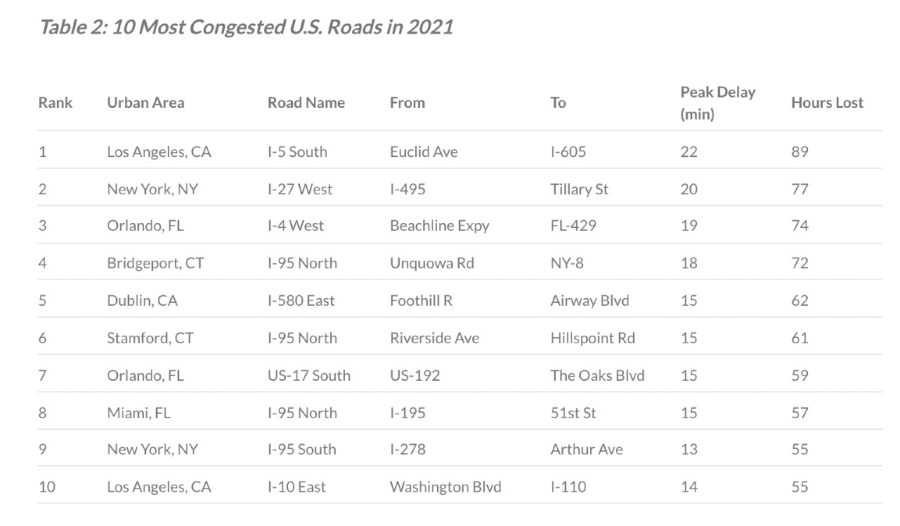Even as traffic has somewhat improved since before the pandemic, Los Angeles still has some of the busiest roads in the U.S. — including the one with the worst gridlock, a new study released Wednesday showed.
Transportation analytics firm INRIX crunched the data and came up with a list of the 25 most congested roads in America, which it included on its 2021 Global Traffic Scorecard.
Topping the rankings is the southbound 5 Freeway between Euclid Avenue and the 605 Freeway, which has a peak delay of 22 minutes at 4 p.m., according to traffic data firm INRIX. The delay costs drivers an average of 89 hours this year, about a dozen hours more than the second busiest highway in New York City.
The eastbound 10 Freeway between Washington Boulevard and the 110 Freeway came in 10th place on the list. It had a peak delay of 14 minutes around the 4 o’clock hour, resulting in 55 hours lost for the year.
Right behind that stretch is the northbound 405 Freeway between Santa Monica Boulevard and Valley Vista Boulevard, which came in at No. 11 in the rankings. The biggest delay on the road was measured at 13 minutes around 4 p.m., costing commuters about 54 hours in 2021.
The final L.A.-area road to make the list was the southbound 101 Freeway from Santa Monica Boulevard to Alvarado Street, which placed 14th on the list with peak delays of 13 minutes in the 4 p.m. hour. However, drivers who regularly take that stretch at the time lost about 51 hours for the year, hence why it’s lower on the list than the 405.
The 580 Freeway in Dublin, California, also made the list at No. 5.

Although traffic in L.A. and elsewhere has picked up considerably since COVID-19 forced stay-at-home orders in 2020, congestion overall has decreased in the U.S. compared to pre-pandemic levels in 2019, the study found.
Los Angeles actually slid out of the top five most congested urban areas in the U.S., dropping a spot to place sixth in the rankings.
Nevertheless, the gridlock will still end up costing L.A. motorists an average of 62 hours and $968 this year, according to INRIX.





















